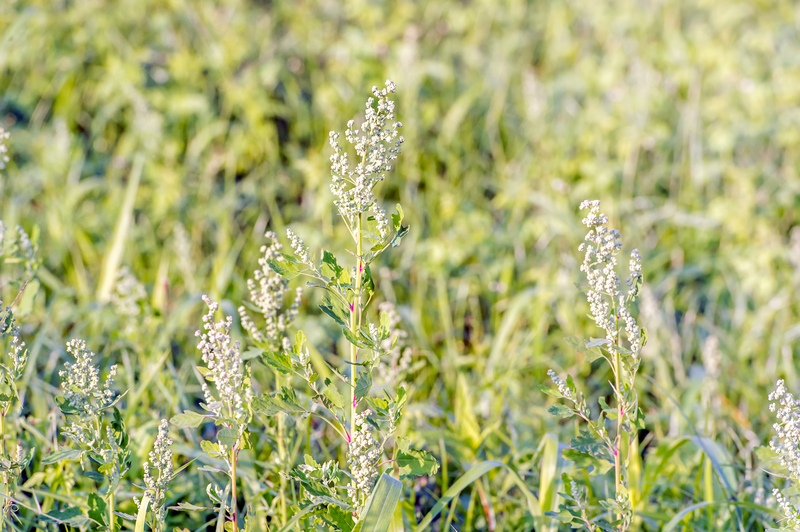Composting: The Journey from Organic Waste to Rich Soil
Posted on 29/06/2025
Composting: The Journey from Organic Waste to Rich Soil
Composting transforms everyday organic waste into nutrient-rich soil, supporting sustainability and healthy gardens. This natural process has been practiced for centuries, but as eco-consciousness grows, learning how to compost effectively is more relevant than ever. Whether you're a home gardener or simply interested in reducing your carbon footprint, understanding the composting process can deliver significant benefits for the planet and your plants.
What is Composting?
Composting is a controlled, natural process that converts organic materials--like food scraps, yard clippings, and paper--into humus, a dark, crumbly, and fertile substance. Microorganisms and small insects break down biodegradable waste in the presence of oxygen, heat, and moisture. The result is a valuable amendment that improves soil health and fertility.
Why Composting Matters
- Reduces landfill waste and methane emissions
- Enriches soil with essential nutrients
- Promotes the growth of beneficial soil organisms
- Helps retain moisture and suppress plant diseases
- Decreases the need for synthetic fertilizers

The Science Behind Organic Composting
Composting is more than just piling up kitchen scraps; it's a scientific process involving decomposition by bacteria, fungi, and invertebrates. The efficiency of this transformation relies on the right balance of carbon-rich (brown) and nitrogen-rich (green) materials, adequate aeration, proper moisture, and the right temperature range.
The Decomposers at Work
- Bacteria and fungi--primary decomposers that break down materials quickly
- Earthworms--improve compost structure and nutrient profile
- Insects (e.g., beetles, mites, and ants)--aid in further breaking down materials
As these decomposers feed on organic matter, they produce heat, carbon dioxide, and water vapor, accelerating the breakdown and transforming the waste into rich, crumbly compost.
The Composting Cycle: From Waste to Soil
Step 1: Collecting Organic Waste
To start your composting journey, gather appropriate organic waste:
- Greens: fruit and vegetable scraps, coffee grounds, fresh grass clippings
- Browns: dry leaves, straw, wood chips, shredded paper, cardboard
Tip: Avoid adding meat, dairy, oils, and diseased plants as they can attract pests or cause unpleasant odors.
Step 2: Building Your Compost Pile or Bin
Choose a convenient spot for your compost, ideally a shaded area with good drainage. Whether you use a homemade pile or a commercial compost bin, layering is essential:
- Start with coarse browns (twigs or straw) to promote air flow
- Add alternating layers of greens and browns
- Moisten each layer lightly (think of a damp sponge)
Step 3: Managing the Pile
Active composting requires occasional care:
- Turn the pile weekly with a fork or shovel to supply oxygen
- Monitor moisture levels--add water if too dry, or browns if too soggy
- Keep an eye on the temperature; the center should feel warm, signaling active decomposition
Step 4: Maturation and Harvest
After several weeks to months, depending on your method and climate, the compost will darken and develop an earthy aroma. Finished compost should be cool, crumbly, and free from recognizable scraps. Sift out any large pieces for continued composting and use the mature material to feed your garden soil.
Types of Composting Methods
1. Backyard or Bin Composting
The most common approach involves collecting vegetable waste, lawn clippings, and dry leaves in a pile or bin. This method suits most households and can be done year-round with basic tools.
2. Vermicomposting (Worm Composting)
Red wiggler worms transform kitchen scraps into high-quality compost, known as vermicast. Worm bins are ideal for apartments or small spaces and speed up the composting process significantly.
3. Bokashi Composting
This technique uses a mix of microorganisms to ferment organic waste anaerobically. It's suitable for indoor use and can handle meat and dairy, which traditional compost bins cannot.
4. Trench Composting
Simply dig a trench in your garden, add organic waste, and cover it with soil. Over time, the material breaks down, enriching the adjacent soil directly.
The Benefits of Compost: Beyond Just Soil
- Reduces landfill demand: Diverts up to 30% of household waste from landfills
- Mitigates climate impact: Cuts greenhouse gas emissions by reducing methane generation in landfills
- Supports plant health: Enhances soil structure, water retention, and nutrient content
- Fights erosion: Strengthens topsoil against wind and water erosion
- Promotes biodiversity: Encourages beneficial fungi, insects, and earthworms
What Can and Cannot Be Composted?
For efficient composting and to ensure a healthy, odor-free pile, it's vital to understand what is suitable:
Compostable Materials
- Fruit and vegetable peels
- Spent coffee grounds and filters
- Eggshells (crushed for faster breakdown)
- Yard scraps: grass, leaves, twigs
- Shredded newspaper and cardboard
- Tea bags (check they are plastic-free)
Materials to Avoid
- Meat, bones, and fish
- Dairy products
- Oily foods and fats
- Pet waste
- Diseased or pest-infested plants
- Coal or charcoal ash
- Glossy or colored paper
Common Composting Problems and Solutions
- Foul odor: Usually caused by excess moisture or too many greens. Solution: Add more dry browns and turn the pile for aeration.
- Pile not heating up: May indicate insufficient nitrogen or poor aeration. Solution: Add more greens and turn the pile.
- Pests or rodents: Attracted by meat or dairy. Solution: Omit these items and cover food scraps with browns.
Tips for Successful Composting
- Chop larger items to accelerate decomposition
- Keep the pile as moist as a wrung-out sponge
- Maintain a balanced carbon-to-nitrogen ratio (roughly 30:1 for best results)
- Turn or aerate the pile regularly
- Place your bin in partial shade to regulate moisture and temperature
- Let the compost cure for a few weeks before using it in the garden
How to Use Finished Compost
Once your compost has matured, it's time to reap the benefits!
- Mix into garden soil: Improves soil structure and plant vitality
- Top-dress lawns: Encourages lush, green growth
- Mulch around trees and shrubs: Suppresses weeds and retains soil moisture
- Potting mix enhancer: Provides nutrients for indoor and container plants
Tip: Sieve compost before use to remove large chunks or unfinished materials.
Composting Myths Debunked
-
Myth: Composting is too difficult and time-consuming.
Truth: Basic composting requires minimal effort beyond collecting and layering organic waste and occasional turning. -
Myth: Compost bins always smell bad.
Truth: Properly balanced compost should have a pleasant, earthy smell. -
Myth: You need a large yard to compost.
Truth: Solutions like worm bins, Bokashi, or compact tumblers work well in small spaces or even indoors.

Composting and Sustainability: Eco-Friendly Benefits
Incorporating composting systems into our homes and communities is a powerful way to support environmental and soil health. Diverting organic waste from landfills minimizes landfill methane production--a potent greenhouse gas. Meanwhile, finished compost enhances the natural fertility of soils, supporting local food production and biodiversity.
Role in Regenerative Agriculture
Their role in regenerative and organic farming is crucial as healthy soils sequester carbon, retain water, and nurture resilient crops without chemical inputs.
Conclusion: Embrace the Composting Journey
Composting is an accessible, rewarding process that turns everyday food and yard waste into nutrient-rich soil. By understanding methods, managing the pile properly, and using the finished product, anyone can play a part in building healthier gardens and a healthier earth. From waste to soil, the composting journey is a powerful step toward sustainability.
Start composting today--transform your organic waste, nurture your soil, and support a greener future for our planet.
Latest Posts
Gardening: Protecting Our Planet One Plant at a Time
Curating a Garden Adventure for Your Dog
Maximizing Plant Protection Against Windy Conditions

